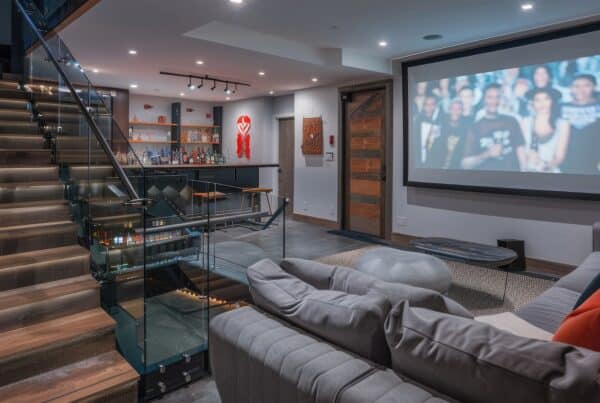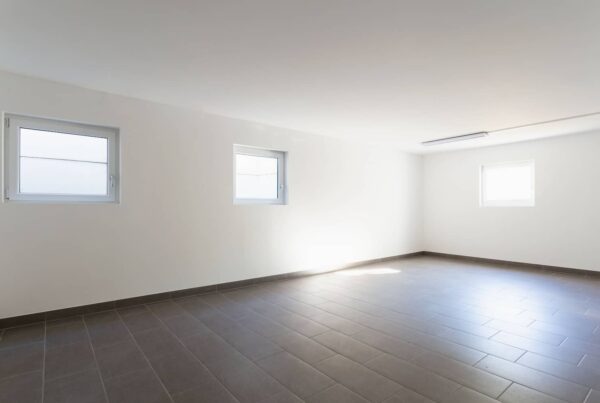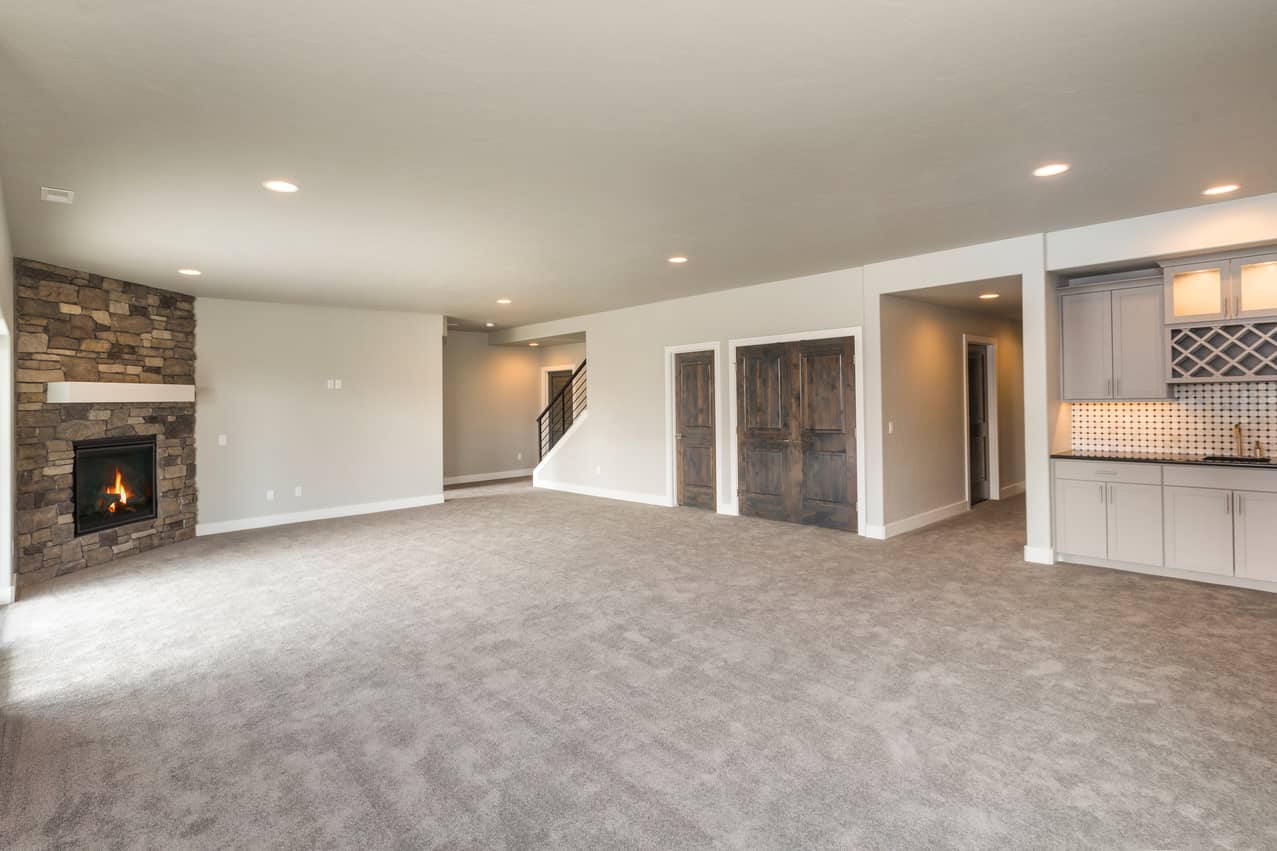
Owning a home can have a lot of excitement. Getting to know the amenities and luxuries of your home can be rewarding and fun. With that, you will want to be aware of how to maximize these luxuries. Purchasing a home with a built-out basement offers added space for lounging, entertaining, or even sleeping. To keep this area of the home looking good and feeling good, you will want to ensure that the humidity levels are where they should be. Curious about what should basement humidity be? Typically, 30 to 50 perfect humidity levels in the basement. Climate and basement type change the levels.
Let’s take a look below at what is involved regarding humidity levels in your basement.
How Are They Different In Winter And Summer?
Humidity levels can change fairly quickly. Depending on where you live, the humidity levels change throughout the year. In most cases, humidity levels are highest in the summer months vs the winter months. Let’s take a look below at what this means.
- Winter months – During the colder months, the air is dryer so the humidity levels drop. The humidity levels in the basement should range between 25 and 40 percent. Maintaining a humidity level inside the basement that balances with the outside air keeps you from getting unhealthy. Also, low humidity levels typically cause health problems such as dry skin, nosebleeds, and other respiratory problems.
- Summer months – In the summer months you want a 30 to 50 percent humidity level. When it is hot and humid the air can get trapped in your basement and this can cause a 60 percent humidity level. Also, moisture levels in the 60 humidity percent range can promote mold growth.
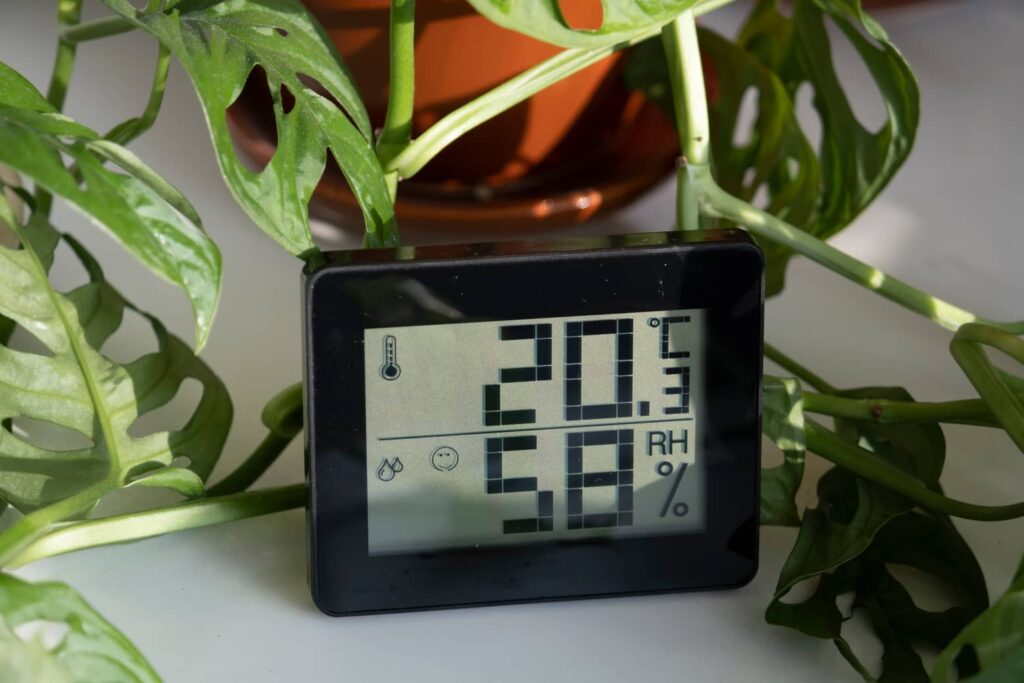
Why Does The Humidity Level Change?
There are a variety of reasons why high humidity levels in your home can change. Let’s take a look below at why humidity levels might change.
- Leaking pipes – Leaking pipes cause moisture build-up. The moment water gains access to your home, the moment mold and mildew as well as increased humidity levels become a concern.
- Sump pump – A broken or missing sump pump does not allow you to properly remove excess water from the basement. Additionally, if the water is left to pool up, humidity gets created and the levels go up in the basement.
- Laundry room – If you have your washing machine and dryer in your basement and the exhaust vent leaks into your basement, humidity levels will increase.
- Poor insulation – Older or damaged basement insulation cannot work quickly enough to manage high moisture levels. Consequently, high moisture levels will increase your humidity levels.
- Bad gutters- if the gutters become clogged, rainwater cannot spill out of the downspouts. Overflowing water can end up next to the foundation of your home. As the water pools up, it will seep into the ground along the basement walls. Also. the added moisture will increase the humidity levels in your basement.
How Can I Prevent This From Happening?
Believe it or not, there are a number of ways that you can gain ideal basement humidity. Let’s take a look below at how we can fix our humidity levels.
- Exhaust fan – Exhaust fans are great at sucking excess moisture in the air out of any room. Installing an exhaust fan in the basement will work to remove excess moisture from the room. Consequently, this will keep excess humidity low.
- Repair cracks – Take a look around your foundation walls and seal them as soon as you can. Sealing the cracks around your foundation allows you to limit the moisture levels in the basement.
- Dehumidifier – The simplest way to keep moisture levels under control in your basement is to use a dehumidifier. In many cases, your HVAC system can assist in removing moisture from the basement, but a dehumidifier is necessary to create a balance.
- Install a Hygrometer – A hygrometer measures the humidity levels in your home. Seeing these numbers on a device reminds you when to adjust your heating and cooling needs.
Other Recommended Maintenance
Now that you have an understanding of what humidity levels are recommended for your basement, you can look at other ways to improve the air quality in your basement. Additionally, getting this task accomplished will only help your family’s health.
Next, if you aren’t sure whether or not you have a finished basement, this would be a great time to read up on what is considered a finished basement. Consequently, there are partial builds and full builds with regard to a finished basement.
Lastly, before you go turning your basement into a finished basement, make sure that you have the proper ways to keep water from getting in. Also, read up on why there might not be a sump pump in the basement. Having a sump pump can also contribute to keeping your humidity levels down.
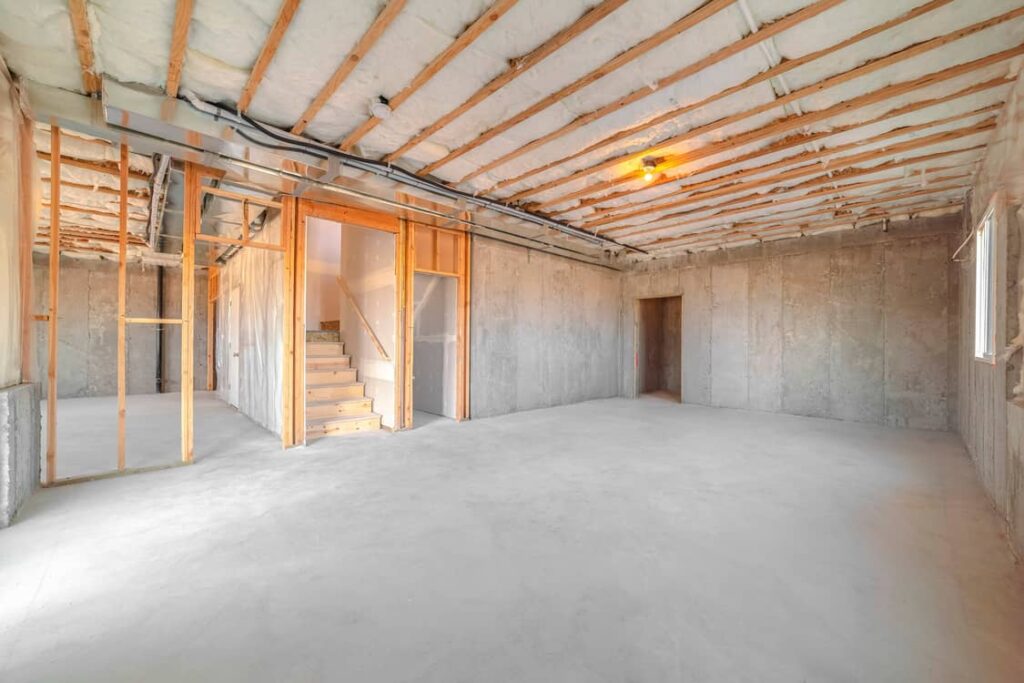
When Do I Call A Professional?
Understanding the necessary levels of humidity in your basement can be a challenge. In all cases, the higher the humidity levels in your home, the more issues you will have. Consequently, high levels of moisture and humidity create a breeding ground for mold and mildew. To avoid this, call on your local home inspection team. Also, they can inspect your basement for humidity concerns in your basement.
Conclusion
Controlling the humidity levels in your home can almost always be pointing back to your HVAC system. In some cases, if the basement is not properly built out or the basement is missing some key moisture barriers the humidity levels could be high. Additionally, your best option is to reach out to your local home inspection team. Also, they can help you get your humidity levels under control. Reach out to Alpha Building Inspectors who can check your basement humidity levels during a home inspection in the Merrimack, New Hampshire area.

